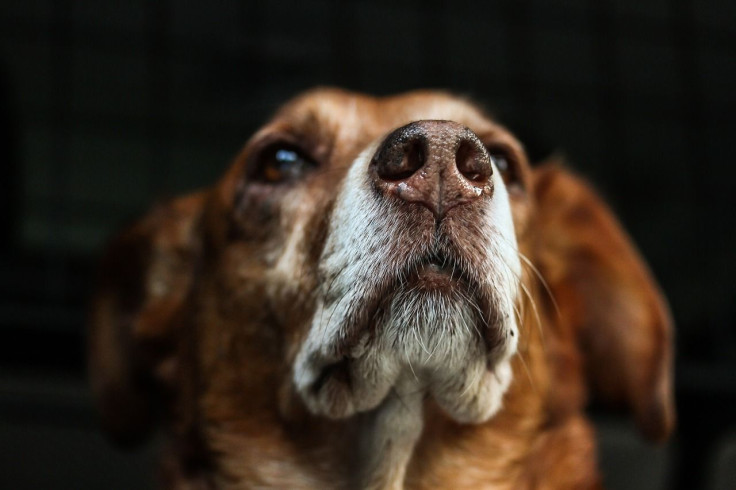What Science Says About COVID-19 Sniffer Dogs
KEY POINTS
- Studies on COVID-19 sniffer dogs have so far yielded impressive results
- However, many of them have not yet been published or peer-reviewed
- Larger sample sizes may be needed to determine dogs' efficacy at sniffing out COVID-19
Can dogs really detect COVID-19 in people? The findings of a recent study about dogs sniffing COVID-19 out of humans seem promising, but experts believe a lot of work still needs to be done to establish dogs' important role in virus detection.
Detecting COVID-19 is essential to making sure that the virus does not spread further. However, current COVID-19 tests tend to take a while before the results come out.
One particular work-around to this issue of speed could be to use trained dogs to sniff out COVID-19 in people. This is a cheaper and much faster alternative to conventional COVID-19 testing methods and, so far, trainers have claimed exceptional results.
A team of researchers, who trained eight German army detection dogs to detect the samples from COVID-19 patients, reported that the dogs were able to sniff out 83% of the COVID-19 positive cases and an impressive 96% of the negative cases, a feature on Nature reported.
This is so far the only published article on the prospect of using dogs to detect COVID-19.
Larger Sample Sizes Needed
So what does science say about using dogs that sniff out COVID-19? Although it's certainly promising, it might still be too early to tell if it really works.
As the feature explained, most of the findings have yet to be peer-reviewed. Even the study mentioned above had critics who noted that the sample size of the study, which used samples from only seven infected individuals and seven other uninfected ones, was too small. As such, the critics pointed out that the dogs could have been trained to detect specific scents instead of COVID-19.
Many other groups are also working on this, using larger sample sizes and involving more COVID-19 patients.
In a currently unpublished study by Cynthia Otto of the Penn Vet Working Dog Centre at the University of Pennsylvania in Philadelphia, for instance, they found that the dogs can detect the difference in the urine and sweat samples from the people with COVID-19 and those without it, so they are working to understand exactly which volatile organic compound (VOC) the dogs can detect.
"The dogs can do it," Otto said as per Nature. "The challenge is the ignorance that we have as humans as to what can confuse the dogs."
To use a larger data set, they are now working to gather sweat from 1,000 shirts worn by people who tested positive for COVID-19 as well as those who got negative test results.
"It's important not to go out too early with grand claims and small data sets," researchers James Logan of the London School of Hygiene & Tropical Medicine said. "He is also working on COVID-19 sniffing dogs.
Promising Results
"No one is saying they can replace a PCR machine, but they could be very promising," veterinary neurologist Holger Volk of University of Veterinary Medicine Hanover in Germany, who was involved in the only published study on COVID-19 sniffing dogs, said according to Nature.
As mentioned, most of the groups working to find out how efficient dogs can be at detecting COVID-19 have so far yielded exceptional results, but many have yet to be peer-reviewed or published.
It doesn't necessarily mean that the method is not useful or effective but, perhaps that there is more work to be done before it can be utilized more widely as a COVID-19 test. As Nature reported, many of these groups working on dogs' possible contribution to detecting COVID-19 recently met in an online conference to share their findings and improve the way they can coordinate their work.
Clearly, researchers are working hard to see how man's best friend can once again help humans.

© Copyright IBTimes 2024. All rights reserved.






















